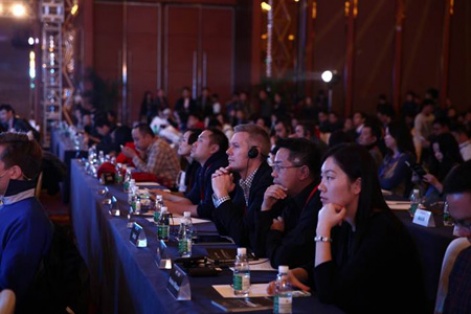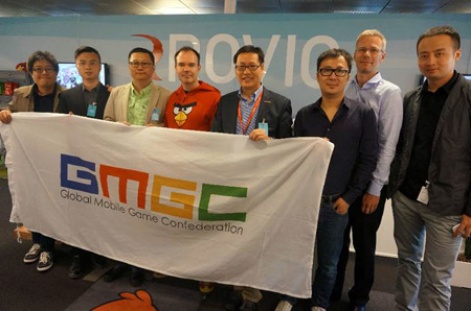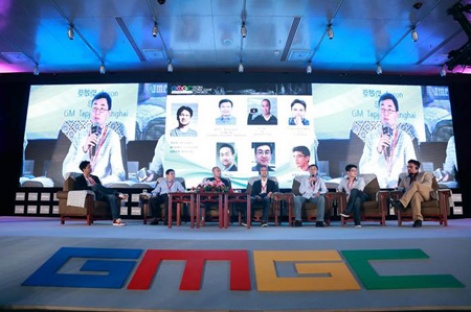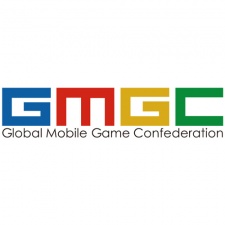If you think the mobile game industry is growing rapidly in the west, it is happening at even more breakneck speeds in China.
Last month, Superdata released a report predicting China's $3-billion mobile game market will surpass the US in 2015, stating its average revenue per paying user (ARPPU) and conversion rate both grew more than 20 percent.
"By comparison, the US mobile game market is showing signs of saturation," says Superdata. "Overall spending continues to grow but does so at a lower rate than its Chinese counterpart."
Today, it doesn't take much to notice the changes occurring in market. Hop onto any Chinese metro line on any day and you'll easily count the number of people with their phones in the horizontal position, slashing through enemies, winning a poker hand, or finally beating that one friend's impossible high score.
China is already one of the largest international mobile game markets in the world, with an estimated 390 million mobile gamers by the end of 2014 - which means 390 million people craving the next big game in their favorite genres.
This still leaves incredible opportunity for game producers, but seizing such opportunity continues to be much easier said than done for many international companies. Without the proper connections, most can barely even dip their toes in the market before they are usually spit right back out.
Flexible friend
One of the biggest impediments to market entry is game copycatting and cloning.
Without the right in-country partner and language skills, combatting copycatting can be incredibly difficult and costly for foreign developers.
The western approach of tackling the issue in courts is not as straightforward in Asian markets, so many foreign game companies who have had their games cloned usually choose to cut their losses than try to go through the long and cumbersome legal process of combatting their plagiarists.
David Song, founder and secretary general, of the Beijing-based Global Mobile Game Confederation (GMGC) saw this problem and begun helping companies combat copycatting through a quicker and more diplomatic approach: directly connecting the parties involved and using instant communication to resolve disputes.

Utilizing the convenience and ubiquity of one of the largest communication apps in the world - WeChat - GMGC gets the conflict resolution started by personally introducing decision makers to one another through private group chats.
Real-time and personal, this approach allows parties to peacefully talk through their issues with the help of an objective moderator, allows them to retain documentation of the conversation, and completely avoids the costly dilemma of legal disputes.
"Many Chinese companies are actually quite willing to cooperate and come up with win-win solutions," says Maxim de Wit, senior director of international at GMGC.
"In the case of Chinese publishers, for example, it is in their best interest to get the original app in their stores in a competitive Android app market to maintain quality of their products."
Your team on the ground
This "WeChat diplomacy" is already common place in dealings with Chinese companies. When Chinese mobile game developer and operator Rekoo had an issue with one of its domestic publishers regarding its Find Something game, GMGC helped facilitate the discussion between the two parties.
In only a few weeks of discussion (rather than months or years), a win-win solution was reached without a long legal process, and both companies left satisfied with the outcome.

As a neutral organization, GMGC's effort to help integrate foreign producers into the Chinese market and create industry partnerships has proven very effective so far, with its business members already growing to over 150 mobile game companies.
In combatting copycatting, GMGC members have been able to preserve their integrity and image, while maintaining the content they rightfully own.
In combatting copycatting, GMGC members have been able to preserve their integrity and image, while maintaining the content they rightfully own.
Song is confident that as long as GMGC's effort continues, a large dent can be made in the practice copycatting and make the Asian markets much more viable for foreign producers.
"Not only is our plan to rid the market of cloning," he says. "But to work towards a standard of business among the mobile game industry that is fair, balanced, and that has healthy competition."
Guide to China
Founded in 2012, GMGC has quickly grown to be one of the biggest influencers in the Chinese mobile game market. True to their mission of facilitating the growth and development of the industry, they organize many events throughout the year - including two of the largest mobile game events in China.
This summer, they will begin hosting events in Southeast Asia, beginning with the first ever Mobile Game Asia conference in Singapore on July 18th.
"Asia doesn't only consist of the behemoth China - we have a many fast-growing neighboring markets that are often underrated," comments de Wit.
"It's important that those of us [in the mobile game industry] in Asia also collaborate and learn from one another, and Singapore is a great hub to begin those conversations."

Following their Singapore event, GMGC will again host the Global Mobile Game Developers Conference (GMGDC) - China's largest mobile game developers conference - on September 24th and 25th.
Every year, they invite leading companies to Chengdu, the developer hub of China, with the express purpose of engaging the top developers based there.
"Chengdu is important in the Chinese tech world, but it is not very well-known internationally," comments de Wit."
Most of the country's top app developers are based in Chengdu, so we want to bring the rest of the domestic and international market there, connecting larger companies to the smaller innovative ones there."
This year the conference will boast over 100 speakers from over 20 countries, over 800 companies, and over 5,000 industry attendees. GMGC hopes that by getting the industry together and nurturing the developer community in Chengdu, they can help develop the mobile game industry so that it can eventually move away from practices such as copycatting.
Interested in learning more about GMGC? Visit our English website.

















